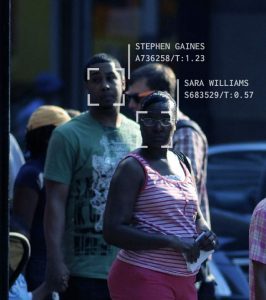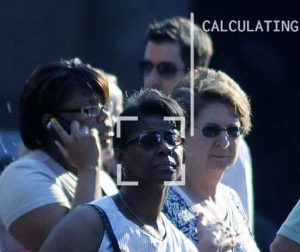Podcast: Play in new window | Download
EFF: Google And Apple Virus Contact Tracing And Privacy
From China, to Israel, and now the U.S., governments seek to enact broad surveillance measures to contain the spread of COVID-19. Already a majority of the public has said it favors such tracking, even though leadership has not shown how this tracking might actually stop the spread. According the Electronic Frontier Foundation, the measures must quote “be scientifically rigorous, and based on the expertise of public health professionals.”
Absent such a showing, many believe it’s too early to warrant the privacy intrusion this surveillance would bring, with uses we may not be able to foresee.
In a rare collaboration, tech competitors Google and Facebook have collaborated in creating a tracking app. It allows users to voluntarily share data through Bluetooth Low Energy transmissions and approved apps from health organizations. It would keep extensive data on phones that have been in close proximity with each other. Official apps from public health authorities will get access to this data, and users who download them can report if they’ve been diagnosed with COVID-19. The system will also alert people who download them to whether they were in close contact with an infected person.
Guest- Senior Staff Attorney Adam Schwartz from the Electronic Frontier Foundation. Adam’s legal expertise on surveillance includes such areas as warrantless smartphone searches, location tracking, warrantless smartphone searches at the borders, and biometric surveillance. Adam worked at the ACLU of Illinois for 19 years, and clerked for Judge Betty B. Fletcher of the U.S. Court of Appeals for the Ninth Circuit.
—-
Perpetual Line Up: Unregulated Police Face Recognition In America
The presence of surveillance cameras across the United States has enabled targeted facial recognition surveillance at essentially any place and any time. Each day law enforcement puts in place more and more cameras, including CCTV cameras, police body cameras, and cameras on drones and other aircraft. The FBI’s Next Generation Biometric Identification Database and its facial recognition unit, FACE Services, can search for and identify nearly 64 million Americans, either from its own databases or through access to state DMV databases of driving license photos.
It’s likely that government agencies will soon be able to pinpoint your location and even with whom you’ve been, just by typing your name into a computer.
The release of Apple’s IPhone X has drawn scrutiny to this technology. Despite civil liberties and privacy concerns, there are few limits on facial recognition technology. In March 2017 Congress held a hearing to discuss the risks of facial recognition surveillance. There is concern that facial recognition can be used to get around existing legal protections against location tracking, opening the door to unprecedented government monitoring an logging of personal associations, including protected First Amendment-related activities. Knowledge of individual’s political, religious and associational activities could lead the way to bias, persecution and abuse.
As with many technological advances, there are benefits, too. Facial recognition can assist in locating missing persons or for other public safety purposes.
Guest – Clare Garvie, Clare is a Law Fellow at the Georgetown Law Center on Privacy and Technology. Her research with the Center is on face recognition use by law enforcement and the disparate impact of payday lending on vulnerable communities. She worked on the Center’s 2016 report on facial recognition technology.
—————————————–
—————————————–



